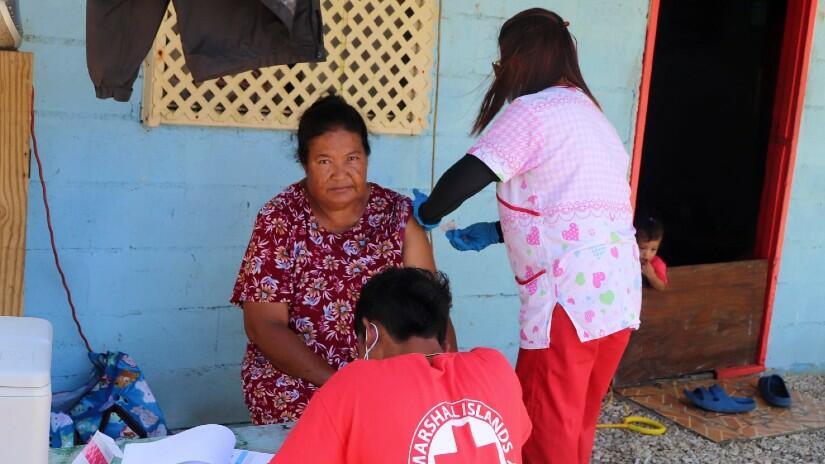The International Red Cross and Red Crescent Movement is calling on states and pharmaceutical companies to move much faster toward a solution to the glaring inequity in access to COVID-19 vaccines around the world. We need to agree now on ways to increase COVID-19 vaccine production and distribution.
The extraordinary times of a global pandemic demand extraordinary measures from the international community. We encourage States to consider all possible measures to boost production, distribution and equitable access to COVID-19 vaccines both between countries and within countries, to leave no one behind.
This includes accelerating, under the World Trade Organization (WTO) umbrella, negotiations related to intellectual property and other barriers to a rapid scaling up of vaccine production all over the world. In addition, pharmaceutical companies must reach further to share the necessary technology and knowledge – and we call on states to provide them with the necessary incentives and support to do so.
"In the middle of the worst pandemic in 100 years, the intellectual property waiver for COVID-19 vaccines is a necessary political commitment to address inequities in access at the scale and speed we need. Millions of lives depend on it and on the equally important transfer of technology and knowledge to increase manufacturing capacity worldwide"
Francesco Rocca
President of the International Federation of Red Cross and Red Crescent Societies (IFRC)
We cannot afford to become bogged down in negotiations over the next 6 months. We also call for governments to accelerate the sharing of existing vaccine stocks to ensure a more equitable distribution, particularly in countries that are currently experiencing surges in COVID-19 cases.
As of this month, the poorest 50 countries in the world account for 2% of the doses administered globally. And the richest 50 countries are being vaccinated at a rate that is 27 times higher than the rate of the 50 poorest countries. Africa accounts for 14% of the global population yet accounts for only 1% of administered doses*.
This is not only morally wrong — it increases the risks of more contagious and deadly variants everywhere and puts unnecessary strains on the global economy.
"Every option should be explored to overcome bottlenecks to equitable access. This includes a better distribution of existing vaccine doses globally, the transfer of technology and the ramping up of manufacturing capacity. There´s no silver bullet to equitable access. All possible means need to be considered"
Peter Maurer
President of the International Commmittee of the Red Cross (ICRC)
Broader access to vaccines also requires community-level delivery and social mobilisation and connection to support community understanding and acceptance. This is important in every country of the world, as the challenges of this pandemic are felt worldwide, but it is even more important for populations who are always at the end of the line.
People in low-income settings, in contexts affected by armed conflict and in areas outside of State control, refugees, migrants, detainees and other underserved populations should be included in national vaccination plans and not be forgotten.
The International Red Cross Red Crescent Movement will continue in 192 countries to support governments' efforts to control the spread of the virus and deliver vaccinations. Our role is to reach the populations in the "last mile", and to continuously empower communities as the driving force for the humanitarian response to COVID-19.
For more information, please contact:
IFRC:
- Tommaso Della Longa, +41 79 708 43 67, [email protected]
- Teresa Goncalves, +44 7891 857 056, [email protected]
ICRC:
- Ewan Watson, +41 79 244 64 70, [email protected]
*The analysis of where vaccines have been administered; the relative reach of testing; and which countries carry out full, partial or no contact tracing is based on Oxford University's 'Our World in Data' (latest available data used) and the INFORM Severity Index – an inter-agency tool that measures the severity of humanitarian crises and disasters globally. For a full list of countries listed against crisis severity, visit INFORM Severity Index. All datasets have some gaps.

